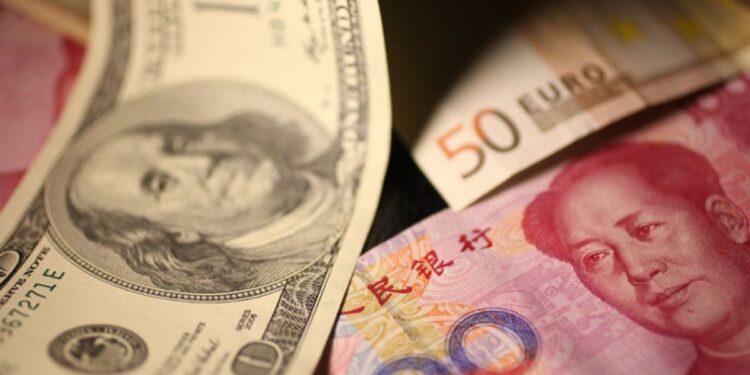The Chinese currency, the renminbi, witnessed a significant decline to its lowest level in 16 months, amid concerns about President-elect Donald Trump’s plans to impose heavy tariffs on Chinese goods.
According to a report published by the Financial Times, the exchange rate fell to 7.33 renminbi against the dollar yesterday, Wednesday, its lowest level since September 2023, despite attempts by the People’s Bank of China (the Chinese central bank) to maintain exchange rate stability.
External factors
This decline coincided with the release of strong economic data from the United States, including reports on the labor market and the services sector, which strengthened expectations that the Federal Reserve (the US central bank) would reduce interest rates at a slower pace than expected, according to the British newspaper.
On the other hand, the Financial Times says that China continues to adopt expansionary monetary policies to confront deflationary pressures, while offering incentive programs, such as supporting the replacement of old home appliances.
For his part, Julian Evans-Pritchard, head of the Chinese economics department at Capital Economics, told the newspaper: “The People’s Bank of China appears to face limited options. It will have to accept some weakness in the exchange rate to be a less bad option, but the question remains: to what extent.” Can he allow the currency to depreciate?
Market pressures and analysts’ expectations
The report indicated that the pressures on the Chinese currency are a reflection of what is known as the “Trump trade,” as Joey Wang, head of currency strategy in the Greater China region at BNP Paribas, said, “The market has gotten ahead of things since the US elections, and it does not seem that “Investors are ready to pull back now.”
In addition, data showed that other Asian currencies, such as the Thai baht, Indonesian rupiah and Philippine peso, also fell by 0.4% against the dollar, highlighting the strength of the US dollar as a key driver.
Continuing anticipation and monetary policy
Despite the pressure, the People’s Bank of China is maintaining its cautious approach pending further clarity on US trade policies.
According to a Financial Times analysis, funding costs for the renminbi in Hong Kong have been rising, indicating the central bank’s attempts to defend the currency against speculation.
The report indicated that Chinese markets also witnessed declines, as the CSI index fell by 0.2%, while the Hang Seng Index in Hong Kong declined by 0.9%.



